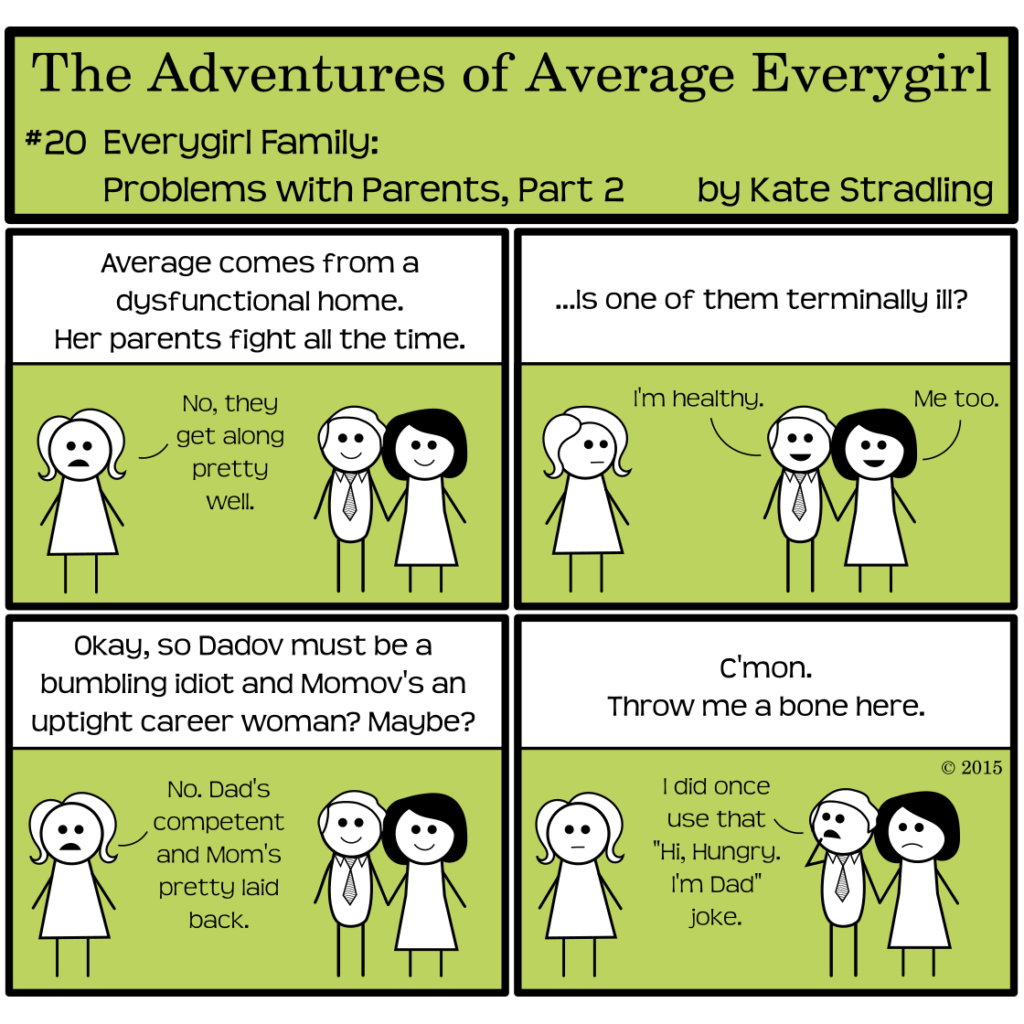
The desire for loving, supportive parents is basic. It’s biological. And when it’s unfulfilled, you have pure and captivating story-fodder. The arguing parents, the sick parents, the career-oriented or incompetent parents: all these character types have a common thread.
They all wear a label of unreliability.
Trouble-ridden main characters won’t rely on contentious or angry parents for help. They won’t want to bother parents who are chronically or terminally ill. They won’t seek the ones who have no time for them, and they won’t trust the ones who can’t function up to par.
In other words, these parent cliches invoke the orphan-as-main-character trope, only with a lower body count. Don’t want to kill off your MC’s mom? Make her emotionally unavailable instead, and you’ll get roughly the same result: psychological trauma and a spur for your MC to act independently when conflicts arise.
It’s a writer’s cheat for creating instant drama. Everyone’s butted head with parents or parental figures at some point in their life, so it’s an easy way to draw the reader and the main onto the same page. Plus, it leaves an opening for that oh-so-satisfying Parent Redeemed™ scene near the end of the book. You know the one I’m talking about. The MC and a parent sit down and heart-to-heart back into one another’s good graces:
“I’m sorry I wasn’t there for you, but I only ever wanted the best for you, sweetie.”
“I know that now, Mom/Dad.”
[Cue hugs, tears, sunshine, rainbows, and a wholesome sense of the world re-aligned to its proper sphere.]
Parents as plot devices
To some extent, the Unreliable Parent is necessary. Fully functional parents protect and support their children, not the other way around. If a main character has to save the world (literally or metaphorically), the parent has to be somehow unavailable. This enables the MC to act as a protagonist instead of a child. It triggers character growth and independence. It’s one of those conditions that allows the MC to wear the mantle of a hero in the first place.
(And this doesn’t apply only to adventure/quest stories. Go look at the parents in Jane Austen’s novels and get back to me.)
In the same vein as the Unreliable Parent, the Antagonistic Parent pushes a main character even further into independence. The MC who faces a parent as a villain also faces the process of de-tangling emotions and identity from that parent.
It makes for delectable drama when done correctly. It makes for cloyed melodrama when flubbed.
(I would here name names, but I’m in a kindly mood.)
For this parent vs. child situation to work, the characterization must be spot-on. If I don’t care about the MC, I’m certainly not going to care about any angst with their parents. And for them to be genuine adversaries, a deep and meaningful rift must lie between them. But please note: “Deep and meaningful” does not equal “overdeveloped and complicated.” The relationship, even if adversarial, must ring true. Sometimes the source of deep rifts can be appallingly simple.
Something as simple as a parent stubbornly viewing the child as an extension of himself.
The hero must be independent, after all, one way or another.